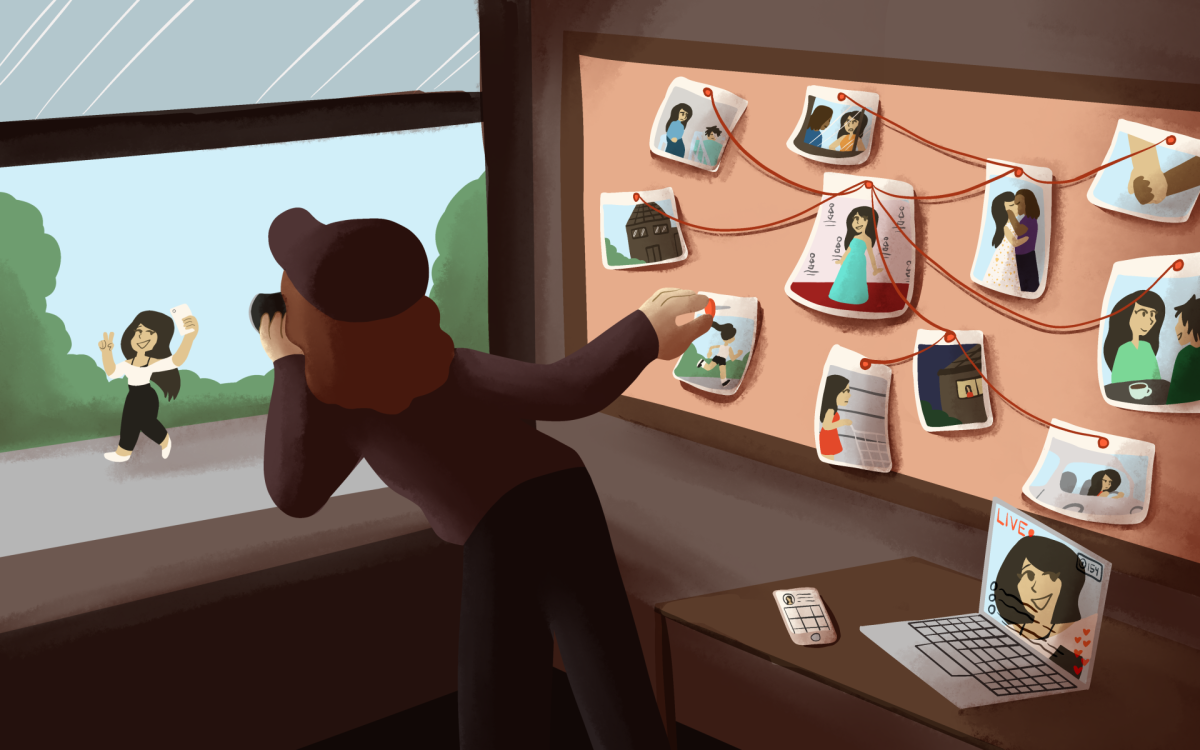The story of Milo Yiannopoulos’ May 24 appearance on campus has turned into somewhat of a fable, snaking its way into the national media circuit through disdainful op-eds and vitriolic comment sections alike. What people who were not at the event miss is that Yiannopoulos represents far more than his brash, “anti-PC” blog posts. Much like the presidential candidate he so ardently promotes, Yiannopoulos creates a normalization of bigotry — the kind that allowed, for instance, for audience members at the May 24 event to feel comfortable enough to scream out racial and sexual slurs like they were cheering on a football game.
Yiannopoulos’ visit was the culmination of a racially charged year, comprised of racial events that largely went under the radar and without punishment. After speaking to students, faculty and staff after last year’s debacle, the administration decided to set forth a multi-faceted plan to address issues on campus.
Months later, a race and speech action plan, which focuses on reconnecting DePaul’s fragmented community by hosting an array of speakers on the topics of race, free speech and hate speech was delineated. A speaker series was announced and conversations popped up around campus about the racial climate many students face this school year.
After speaking to students, faculty and staff ourselves, we believe that DePaul still has a long way to go to heal the wounds of last year. The efforts announced thus far do little to redress many of the valid grievances students have.
Though transparency about the conversations between the administration, faculty, staff and students has gotten better, the university needs to be more open.
Cancelling appearances without a clear statement or guidelines as to why, does nothing for the transparency university officials have talked about since Yiannopoulos’ visit. It is not enough to say that the university is about discourse. Viewpoints that challenge each other should be brought to the university so that students can hear multiple sides. This is not to say that we should support provocateurs — we shouldn’t by any means — but bringing valid viewpoints from both sides of the aisle and all walks of life are necessary. What we need to guard against is hateful, racist rhetoric disguised as a discussion.
In the larger context, not issuing a reason as to why speakers are cancelled doesn’t help. A statement would have shown DePaul stands behind its marginalized students or is committed to vibrant dialogue.
The administration’s multi-faceted plan to address issues on campus, including a race and speech action plan, which focuses on strengthening DePaul’s fragmented community by hosting an array of speakers on the topics of race, free speech and hate speech was delineated. Created by the Office of the President along with Academic Affairs, Institutional Diversity and Equity and Government Affairs, a speaker series was announced after conversations popped up around campus about the racial climate many students face this school year.
DePaul reacted to the letter with no response or official statement thus missing a viable opportunity for DePaul to stand in solidarity with its students of color and LGBTQ students. At least a response to the University of Chicago’s criticism on safe spaces would have been appropriate. Safe spaces exist for LGBTQ+ and students of color because of similar attacks ensued upon them last year.
DePaul missed a chance to highlight the Center of Identity, Inclusion and Social Change and their endless effort to create a safe space for students who were targeted last Spring. DePaul’s silence on the University of Chicago’s letter could have been turned into a proactive effort to show support and to address student’s grievances expressed during the town hall forum in June.
It’s hardly a surprise that Yiannopoulos’ visit would remain burned into the collective consciousness of the DePaul community. Public relations problems aside, the idea that the social ramifications of the event could simply vanish after a few months is misguided, to say the least.
The tense atmosphere created by Yiannopoulos’ visit to campus last Spring is still palpable on campus this year. Yet, the university’s response has not been as stringent.
The year long speaker series was created with the intention to strengthen DePaul’s community and any member of the DePaul community is invited to attend. The president’s series hosts several panelists across the political spectrum with the intention to provide various perspectives on race and free speech relations, but a speaker series will not resolve the issues on our campus. Faculty have called for DePaul to make their values clear. DePaul needs to ask and solidify what their values as a university are before seeking further methods to address the tension surrounding race and free speech on campus.
There needs to be a better demonstration of this through allocation of resources to existing departments and programs such as the Center for Black Diaspora, the Latin American and Latinx studies program, the African and Black Diaspora program and Women’s and Gender studies amongst other offices geared to marginalized student. Students need more than just a series with guest speakers and instead a proactive, transparent coalition ready to address issues similar to what occurred last Spring is needed. Working with staff and faculty in these departments is an active method in achieving this.
Students of color and LGBTQ+ students, who were the main targets of hateful comments and negative rhetoric last year, need the support of the university in these times, not speakers or a race and action plan that puts change and viable progress down the road, largely out of reach for the current student body.
The university has issued a measured response to the problems we face as a DePaul community. We understand that these issues will not be fixed over night. However, more can be done. Transparency, especially in regards to banning speakers, is the main component. A clear policy on campus demonstrations and the penalties that may be brought against those who violate it is also important. All students should be informed of such policies as well. Maintaining campus mission and values through emphatic statements on our values and what will and will not be tolerated, are also important.
Change, especially at an educational institution where many ideologies are present, is hard to fathom at the university level, but it is not impossible. The university needs to be more proactive in its approach to mending the climate on campus, as well as in preventing events similar to last spring from happening again. Scrambling to play catch up is not Vincentian, but living by our mission and values is.








